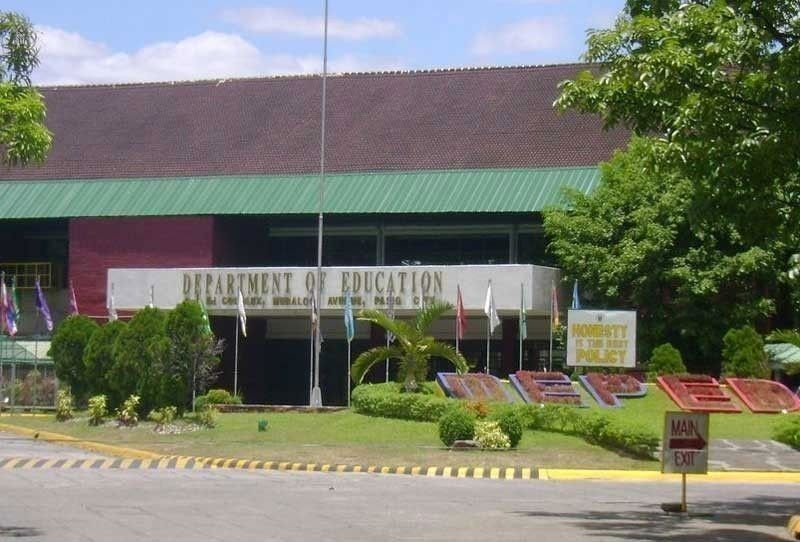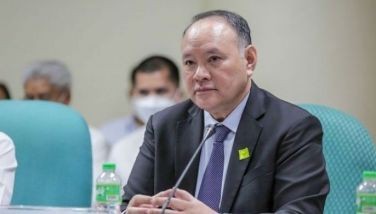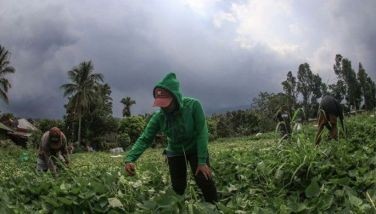DepEd’s new ‘decongested’ K-10 curriculum aims to arrest learning losses

MANILA, Philippines — The Department of Education has unveiled its revised curriculum for Kinder to Grade 10 (K-10), giving students and teachers an early glimpse of the trimmed number of learning competencies they can expect starting next school year.
Aimed at arresting learning losses, the recalibrated K-10 curriculum launched on Thursday reduced the number of learning competencies by 70% and tweaked the lineup of subjects in grades 1 and 2 to improve early mastery of numeracy and literacy.
DepEd will officially implement the new curriculum nationwide starting next school year, while a pilot implementation in select schools will start this school year.
The revised curriculum will “reintroduce the basic foundation of education to our learners — the literacy and numeracy competencies” and ensure they develop 21st century skills, Vice President and Education Secretary Sara Duterte said.
A curriculum “overloaded” with content has “compromised (students’) mastery of fundamental skills, such as reading and solving simple math problems,” Duterte said.
“These issues, along with other existing factors and conditions contributed to our learning losses. To avert further learning losses, the curriculum had to undergo necessary revisions,” the DepEd chief said during the event.
The new K-10 curriculum, which took two years to complete, is part of the broader K-12 curriculum. The review for the curriculum of senior high school — or grades 11 and 12 — is scheduled to be done by the end of 2024, according to DepEd.
DepEd in April released a draft version of the new K-10 curriculum to gather feedback from the public.
Greater focus on foundational skills
In the revised K-10 curriculum, DepEd slashed the number of essential learning competencies from 11,738 to 3,664, representing a 70% decrease.
DepEd also cut down the number of subjects in grades 1 and 2 from seven to five, taking out mother tongue as a subject but retaining it as a medium of instruction and adjusting subjects related to language.
In the revised curriculum, Grade 1 students will be studying standalone “Language” and “Reading and Literacy” subjects connected to developing good literacy skills needed in learning other subjects, Andaya explained.
These two subjects will then become “English” and “Filipino” in Grade 2.
GMRC as a subject has also been brought back starting Grade 1 due to Republic Act 11476, replacing Edukasyon sa Pagpapakatao.
From grades 4 to 10, students will be learning eight learning competencies, with GMRC renamed as Values Education.
DepEd Bureau of Curriculum and Development Director Jocelyn Andaya said in a press conference following the event that DepEd decongested the curriculum of competencies that “repeat” and are “only nice-to-know’s but not a must-to-know.”
Essential learning competencies are lessons that students “bring into the next level” and use as a “springboard” to develop more complex skills, Andaya said in Filipino.
Based on its review of the current curriculum, DepEd had found an “imbalance of cognitive demand” in the essential learning competencies demanded of students in Kinder to Grade 3, suggesting that there should be more focus on foundational skills like numeracy and literacy, Andaya added.
International assessments conducted before the pandemic have found the Philippines to be a laggard in mathematics, science and reading.
In particular, Filipino students fared worst among 79 countries in reading literacy and second lowest in both mathematical and scientific literacy in the 2018 Programme for International Student Assessment (PISA).
This only worsened during the health crisis, with less than half of students taking the National Achievement Test in SY 2021-2022 reaching a score of “nearly proficient” or at least 50%.
Peace education
Duterte said that peace education, which is "close to my heart," has been integrated in several learning areas of the revised K-10 curriculum.
Among the lessons to be discussed in peace education, according to Andaya, are concepts on self-awareness, social responsibility, disaster risk mitigation, and other topics needed to “make learners realize they need to seek peaceful resolution to conflict.”
Phased implementation
The rollout of the new curriculum will follow a five-year staggered implementation.
The curriculum is scheduled to be rolled out first in SY 2024 to 2025 in kindergarten and grades 1, 4 and 7.
For SY 2025 to 2026, the new curriculum will be rolled out in grades 2, 5 and 8.
This will be followed by grades 3, 6 and 9 in SY 2026 to 2027.
Last to experience the new curriculum are grade 10 students in SY 2027 to 2028.
DepEd will be conducting a pilot implementation of the curriculum in a few handpicked schools this year using self-developed materials to train teachers.
Students are expected to spend the same number of hours in school despite the decongested curriculum, Andaya said, to give students enough time to master subjects and gain skills through repetition of lessons.
- Latest
- Trending






























